20 Jan Commodity Wars – Best of FLAVA Ideas for Latin Teachers
In my presentation at FLAVA this year I led participants in playing a large scale strategy game that I have created over several years. The game is similar to Settlers of Catan, Risk, and Monopoly but is much larger and is focused on the events and geography of the Roman World.
In the game participants became the economic and political leaders of one of eight major political regions of the ancient world: Londinium in Britain, Gades in Spain, Roma in Italy, Carthago in North Africa, Alexandria in Egypt, Sardis in modern Turkey, Athenae in Greece, and Mogantiacum in Germany. As economic leaders of their regions the participants traded the commodities which their regions produced for commodities they required, acting out the import and export of major commodities in the ancient world. As political leaders of their regions they built armies and navies with which to attack and seize other regions’ lands and thereby take their commodities.
To paint a picture; the participants of all countries needed wheat to feed their people but only four of the eight countries produced wheat. Participants walked around the room carrying little slips of paper with pictures of the commodities their countries produced to other people from other nations and made a physical trade of one type of commodity for another. Once each group gathered all of the necessary commodities they placed the little paper pictures on posters with the necessary commodities labeled. The objective was to fill up their poster, covering each commodity name with a slip of paper showing a picture of that commodity. Each group had a separate page with the commodities necessary to create and maintain armies and navies.
At FLAVA participants were able to trade three years’ worth of commodities. They filled up their necessary commodities pages, the commodities were taken away showing that they were used up, and then the participants began the process of filling up their necessary commodities posters all over again. Some groups were able to obtain all the commodities that they needed quickly; others struggled because their nations produced less and so they had less to trade.
As a middle school teacher teaching 6th, 7th, and 8th grade students, I wanted the Commodity Wars game to be an activity that anyone could participate in without needing to know anything about Latin or Rome. The game provides a platform for a teacher to teach geography, important historical events, imperialism, economics, politics, military science, and product-based-culture without the students or participants needing to know anything about these subjects.
With only one hour to play the game the participants traded a lot and fought not at all, completing only the economic side of the game. There was great discussion about the commodities that nations produced and the struggles inherent in maintaining a region of the world while attempting to build military strength, all of which required massive amounts of a wide variety of commodities.
My wish in bringing the Commodity Wars game to FLAVA was both to share the activity and to receive suggestions for improvement. This is an activity which my students have found very fun and motivating that requires no prior knowledge and provides an understanding of geography, ancient politics, ancient economics and ancient historical events that affected the politics and the economics of the entire known world. I thank all participants for being such eager volunteers in playing the game and for their observations and suggestions, which have made the game even better.
Since FLAVA I have changed the proportions of commodities countries produce and require, added commodities such as glass, cattle, and hard currency, and have been working on turning the 10-foot by 11-foot floor map used into an interactive Powerpoint.
I very much look forward to presenting an improved version of Commodity Wars at the NECTFL conference in March and returning for more excellent professional development to the 2014 FLAVA conference.
I would really appreciate your suggestions and your ideas on how to improve Commodity Wars to make it more historically accurate and to make it work better as a game. If you would like to contact me with questions, suggestions, or ideas please email me at magister.holec@gmail.com. All of the materials used to play the Commodity Wars game as well as research materials guiding the development of the game are in the following dropbox folder: https://www.dropbox.com/sh/78vikkqxtfibtit/D5EicAkHv2



No Comments